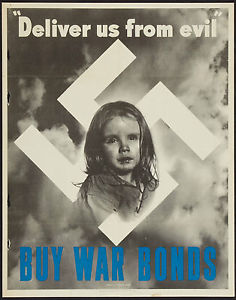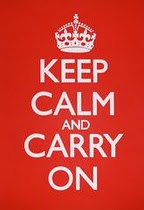It started with:
and it was followed by:
http://yvonnespence.com/all/1000-voices-for-compassion/
With this the train had left the station. Compassion has been spreading rapidly through the blogosphere ever since.
It is a movement which hopes to spread compassion, kindness, support, caring for others, and non-judgment and there is nobody I think embodies all these things more than my very own sister.
She is an extremely kind and caring daughter, sister, friend, wife, mother, and aunt. Not to mention one of the most caring human beings around.
Okay, so I may be a tad biased here, but just read on and you’ll see what I mean.
All this is why I’m pleased she took some time to write about her thoughts on these important qualities and I am thrilled to shine this week’s spotlight on her and her thoughts now.
***
Compassion is a complicated thing. It should be more simple, but it is often more than just caring about the people that deserve it. The hard part is caring for those who do not deserve it, it is those people who somehow need it more.
The problem with that is that it is the other people, who we believe to be innocent, who usually are – that would then suffer. There are also many situations where lines – between those who are considered innocent our not, whether to consider someone a victim or not, or if they are worthy of compassion – are blurred.
Those who do the most horrendous things are usually the most scarred, the ones with the most tragic past.
The hardest line to walk is not excusing their current behaviour; the fact that their father beat them everyday of their childhood – that they had to witness the same atrocities to their mother or siblings, should this give them a pass for their current actions? Does this excuse what they have become?
Of course not. There comes a point in time when any victims they are creating are now more important than the tragic up bringing that turned them into the reprehensible person they have become. Personal accountability has to be taken into consideration, there is a certain point where it trumps even the most tragic upbringing, but even then there is all always room for compassion, though that is often easier said than done.
Does that mean we should not also feel compassion for what inspired this person’s spiral into what they have become?
Herein lies the problem. How do we try to understand the bad part, without excusing it?! There is, unfortunately, no simple solution but it does require to sometimes just take a step back and try and look at the situation from all sides – especially when it seems like the hardest thing to do.
Recent events; terrorist actions, racial injustices, victim shaming in sexual assaults – all things that could use a little, or even a lot, more compassion.
Does free speech excuse being callous with someone’s beliefs? Regulations on free speech, whether legally enforced or from social pressure, are in no way the answer but just because you can do something does not mean you should!
There is, again, no excuse for any reaction that involves a blatant disregard for human life, and it is never easy to balance being able to express ones personal beliefs that are often something we as humans feel very passionate about. No one wins when public discussion and free speech is suppressed – but there is also always room for a little more compassion.
On September 11th, 2001, nineteen men were responsible for the death of thousands. Thousands of people who were living, breathing human beings, with feelings and families. How many children grew up with out a parent – how many parents had to bury their children? Others buried their wives, or husbands – uncles, aunts, cousins, friends.
Now just imagine what went wrong in those nineteen men’s lives for them to feel these actions were justified? It’s not an excuse for what they did, only something to take into consideration. Did one or two of these men – or all of them, experience loss on their own scale? I am not suggesting we excuse their actions, only that we strive to understand them.
To look beyond and consider these feelings, this terrible event brought up, in an attack so close to home, it is hard to look past our own pain and see the pain in others.
That this feeling of vulnerability, that not feeling safe and secure in our every day life, it is the reality in those attackers lives, as well as so many others in their communities. Also that they do not all turn out to be extremists. It’s not always easy to understand for us but like in all parts of the world we are often byproducts in our upbringing and what we are subjected to in our everyday lives. Now imagine this it’s your everyday life but on a much more extreme level.
There is little one can do to make war less horrific than the hard truth of it but a little compassion can go a long way. You may argue that the, us against them, mentality is what gives a soldier their ability to do what it is they need to do, but compassion might just be what is needed.
Most of the people they are fighting are also just people with families, fighting for their country. You may feel they are fighting for a country with unconscionable practices, but we also must remember looking in on another country’s policies (as with an individual’s beliefs) is not as simple as it sounds. Morality is sometimes much less black and white than we would like to think.
Just as, despite what side you may fall on with the out come in the shooting in Ferguson, Missouri, a little more compassion for what is a never ending struggle to feel safe as a minority in North America.
I can not say what the police force, nor the individual officer’s, feelings were behind the shooting but Michael Brown’s subsequent innocence or guilt does not remove what it represents to a community that feels unheard and unimportant.
Michael Brown’s guilt or innocence in any crime in the moments before, is not really what makes the situation so hard to just move on from. The feeling that it may not always matter if he was coming from volunteering at a soup kitchen or from robbing a convenience store, that his death is representative of what it means, to not, be a white man in America.
There are many examples that being guilty of something, is not always requirement for a death sentence – this is not the first or the last time. Compassion is required to understand that, it requires taking yourself out of your own shoes and imagine how different some peoples realities really are.
Victims of sexual assault also feel a similar marginalization – with the burden of the victim to prove their innocence, in favor of not violating the rights of the perpetrator. In that regard, people usually just site innocent until proven guilty for standing up for the accused, but with sexual assault, unlike most other crimes, assuming the accused is innocent often requires implying the victim is guilty until proven otherwise.
This doesn’t happen in murder cases or most other crimes, it just means they’ve got the wrong person. With sexual assaults, the assailant is most often known to the victim.
The innocent until proven guilty defense also does not apply outside a court of law, and definitely does not remove your ability to show compassion towards someone who is a victim of such a personal and horrendous crime.
Ensuring there are never false accusations may not be possible but there is a much larger number of women who remain silent, due to the reality of what the victim exposing themselves will do to their everyday lives.
It is when we fail the victims on such a large scale that we need to look at how we deal with such a sensitive subject. Compassion when dealing with a woman (or a man) who has been sexually assaulted should be an easy choice but like many things in life – any hostile or judgmental reaction, often tells more of the other person than the victim themselves.
Understanding a person’s motivation can go a long way with dealing with your own suffering. This applies to personal pain, on an individual level, as well as on a larger scale with the pain of a whole community, or a nation. Compassion can also be applied in all areas of our lives.
Instead of throwing away a relationships – regardless of the degree of the betrayal, maybe try and understand what caused them to be so careless with your feelings. Forgiveness is not always an option but understanding it can give way to some compassion for both parties. It can also be just as beneficial to you as it is to whoever hurt you. By your ability to show that understanding, in a situation that is not necessarily your fault (though most things in a relationship do require some fault on both ends) – this compassion will help to strengthen your other relationships, in both the present and the future.
We also see it as a divide between generations. We could all better ourselves if we could try and have a little more compassion for the things we see as insignificant in the lives of others. The idea of a teenager being in love can seem foreign to those who have long been passed this stage in their life, making it easy to pass it off as puppy love. Although it may not be the same, as the love of a couple who has enough experience in love and life, the loss of either relationship is painful to the respective person, both just as valid, even if they are not what some see as equal.
Everyone’s pain is valid, and this is where compassion is ultimately needed. You do not need to excuse behavior to show compassion. We could all benefit from putting ourselves into others shoes. Does this solve all the problems of our world, maybe not. Does it erase the many wrongdoings, of course not – but the only way to change the world is through these small steps.
There will always be bigger events that are credited with shaping our humanity but it is just as important to make these small gestures to continue to push all of us to create a world where we have the best chance to get along, to give all its inhabitants the dignities we ourselves deserve. And it extends to all inhabitants of this earth, from our fellow humans, to the many animals we share it with, as well as the environment and natural resources surrounding us.
Compassion is the answer.
***
I agree. That is why I am participating in #1000Speak and why I wanted to share this topic of compassion, from wise women like my sister.
Thank you Kim, for these deepest of thoughts.
For more information, check out:
1000 Voices Speak For compassion on Facebook
I will be posting a few more times on these topics, leading up to February 20th.

 his year marks
his year marks




